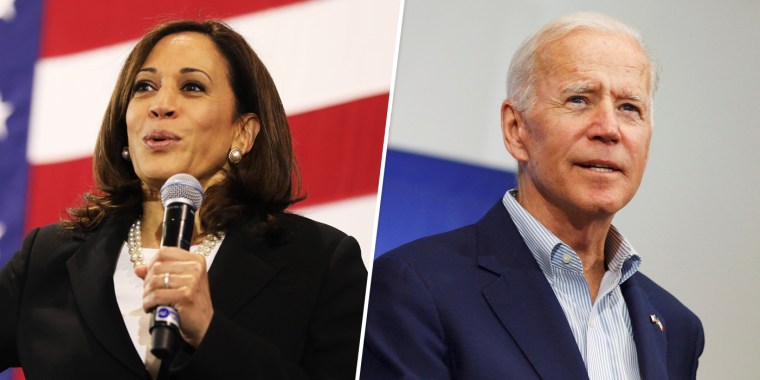 |
| Kamala Harris (on left) and Joe Biden |
Harris's ploy worked well for her. Although Biden still is at the top of the presidential polls, he quickly lost ground to Harris, who jumped up in the polls to somewhere between second and fourth place, depending on the poll.
There is a front page article in today's Washington Post, "What a lifeguarding job on the black side of Wilmington taught Joe Biden about race," that gives an in-depth look at how the young Joe Biden learned to despise the racism in American life and history. By the time a few years later when he entered politics, Biden had personally earned the friendship, respect, and support of the black community in Wilmington, Delaware. The loyalty from that time persists today.
The talk of "busing" in the TV debate was probably less than comprehensible to many younger viewers. Nikole Hannah-Jones's recent article in The New York Times, "It Was Never About Busing: Court-ordered desegregation worked. But white racism made it hard to accept" explains all.
 |
| Illustration from the article. |
"Busing" was a term used in the 1970s to refer to a last-ditch effort by anti-segregationists to force public schools to integrate. After the Supreme Court, in its unanimous decision in the 1954 case Brown v. Board of Education, said segregated schools were unconstitutional, school boards and local governments in both the South and the North found a variety of ways to sidestep integrating their schools. Pro-integration forces in school systems responded by simply assigning black children to formerly all-white schools, and vice versa. Since the affected schools were not in the actual neighborhoods of the affected children, the children had to ride school buses to their new schools.
White families in particular — but also some black families — vociferously objected to the fact that "busing" was taking children away from their closest neighborhood schools. Objecting black families simply wanted their neighborhood schools to be brought up to white schools' standards of quality. But objecting white families assailed "busing" rather than admit that what they really hated was the fact that integration would force their children to sit next to black children in schools.
It's obvious, then, that those old battles about race have not really been won by the forces of justice and racial equity. (Nor are those who favor racial equity today necessarily on the same page as to how to achieve it.) In fact, as this graphic from the Hannah-Jones article shows ...
 |
| Click to enlarge. |
... integrationist gains which had been achieved by "busing" and other means after 1968 were rolled back significantly after 1988. This sad fact was true in various parts of the country outside the Northeast. Even sadder was the fact that in the supposedly "blue" and liberal Northeast, there had been no integrationist gains in school systems in the first place.
No comments:
Post a Comment